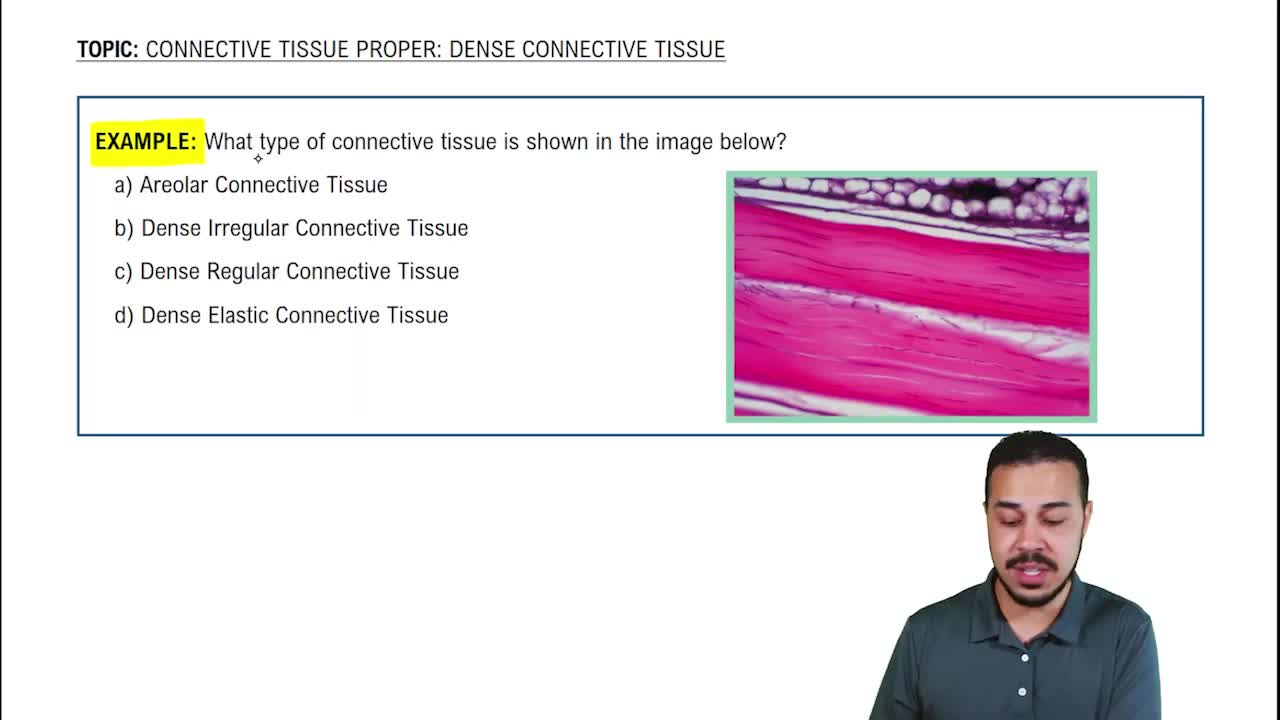Here are the essential concepts you must grasp in order to answer the question correctly.
Collagen Synthesis
Collagen is a vital protein that provides structure and strength to various tissues in the body, including bone, cartilage, and connective tissues. Vitamin C plays a crucial role in the hydroxylation of proline and lysine residues in collagen, which is essential for the stability and integrity of the collagen triple helix. A deficiency in vitamin C disrupts this process, leading to weakened connective tissues and impaired healing.
Recommended video:
Symphysis (Plural: Symphyses)
Effects of Scurvy
Scurvy is a disease resulting from a deficiency of vitamin C, leading to symptoms such as fatigue, joint pain, and bleeding gums. In terms of connective tissues, scurvy can cause a breakdown of collagen, resulting in weakened bone structure, increased susceptibility to fractures, and impaired wound healing. The lack of collagen also affects the tensile strength of dense regular and irregular connective tissues, leading to further complications.
Recommended video:
Effects of the Complement System
Connective Tissue Types
Connective tissues are categorized into various types, including dense regular, dense irregular, and cartilage, each serving distinct functions. Dense regular connective tissue, found in tendons and ligaments, provides tensile strength in one direction, while dense irregular connective tissue, found in the dermis, offers strength in multiple directions. Cartilage provides cushioning and support in joints. A deficiency in collagen due to vitamin C deficiency would compromise the structural integrity and function of these tissues.
Recommended video:
Connective Tissue Proper: Dense Connective Tissue Example 1
 Verified step by step guidance
Verified step by step guidance Verified Solution
Verified Solution



 3:40m
3:40m